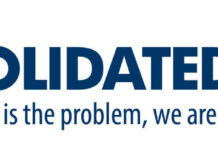SAN FRANCISCO, June 7, 2018 /PRNewswire-HISPANIC PR WIRE/ — The Labor Commissioner’s Office has cited the following seven Bay Area restaurants more than $10 million for wage theft violations affecting 431 workers.
The restaurants inspected included Kome Japanese Seafood & Buffet in Daly City, Burma Ruby Burmese Cuisine in Palo Alto and Rangoon Ruby Burmese Cuisine located in Palo Alto, San Francisco, San Carlos, Burlingame and Belmont.
The citations issued to Kome total more than $5.16 million and involve 133 workers, and the Burmese restaurant chain was cited more than $4.96 million for its 298 underpaid workers. The wage theft violations and civil penalties cited include failure to pay minimum wage, overtime and split shift premiums.
“Taking tips from workers and paying workers by salary to deny them their hard-earned overtime pay is wage theft,” said Labor Commissioner Julie A. Su. “Our job is to protect working people’s right to a just day’s pay for a hard day’s work, and to stop employers who embrace wage theft as a business model.”
The Labor Commissioner’s investigation and payroll audit of Kome determined that 69 cooks, sushi chefs and dishwashers typically worked more than 55 hours per week but were paid a fixed salary that did not include overtime. As a result, these workers are owed nearly $3 million in unpaid wages and penalties. Other staff, including hosts, servers and bussers, are owed more than $1.4 million for overtime, split shift premiums, and unpaid minimum wage violations, including the illegal counting of tips received as part of the minimum hourly wage. Tips are the sole property of the worker and cannot be credited towards an employer’s obligation to pay minimum wage.
Investigators inspecting the Burmese restaurant chain also discovered the 87 cooks, paid a fixed salary at the six restaurants, typically logged more than 10 hours of unpaid overtime each week. They are owed $3.8 million for unpaid overtime wages, minimum wages, split shift, liquidated damages, waiting time penalties, and failure to provide accurate itemized wage statements. The remaining 211 servers, hosts, dishwashers and bussers at the Burmese chain were not paid the daily extra hour of minimum wage required when their employer scheduled them to work split shifts. Those workers are due $590,072 for split shifts and other wages and penalties owed.
Chinese Progressive Association and Asian Americans Advancing Justice – Asian Law Caucus, civil rights organizations located in San Francisco, represented many of the workers at Kome who cooperated in the investigation. The Labor Commissioner’s Office launched the investigation of the Burmese restaurant chain after receiving complaints from workers who reported wage theft to the Asian Law Caucus, which also represented many of the workers who cooperated in the investigation.
“Workers often do not know their rights and fear losing their jobs for complaining about wage theft,” added Labor Commissioner Su. “We work with community-based organizations that help workers report labor law violations.”
David Tai Leung, Wendy Lai Ip, Jun Zheng, Gang Zhou, Bai Dong Zhang and Tiffany Leung, owners of the corporations Kome Japanese Seafood Buffet, Inc. and Koshi Food Service, Inc., are ordered to pay the 133 workers at Kome Buffet $4,381,461 in unpaid wages, premiums and liquidated damages, as well as civil penalties of $780,400.
Max Lee and John Lee, owners of Rangoon Ruby Investment LLC and Burma Ruby Investment LLC, have been ordered to pay their 298 workers $4,394,118 for unpaid wages, premiums, liquidated damages and itemized wage statement violations, and civil penalties of $574,150.
Enforcement investigations typically include a payroll audit of the previous three years to determine minimum wage, overtime and other labor law violations, and calculate payments owed and penalties due.
When workers are paid less than minimum wage, they are entitled to liquidated damages that equal the amount of underpaid wages plus interest. Waiting time penalties are imposed when the employer intentionally fails to pay all wages due to the employee at the time of separation. This penalty is calculated by taking the employee’s daily rate of pay and multiplying it by the number of days the employee was not paid, up to a maximum of 30 days.
A salaried employee must be paid overtime unless they meet the test for exempt status as defined by federal and state laws, or unless they are specifically exempted from overtime by the provisions of one of the Industrial Welfare Commission Wage Orders regulating wages, hours and working conditions.
Split shift is a work schedule interrupted by non-paid and non-working time periods established by the employer and it is not a rest or a meal period. Minimum wage workers are entitled to one-hour of minimum wage as a premium for working a split shift.
The civil penalties collected will be transferred to the State’s General Fund as required by law.
The Division of Labor Standards Enforcement, or the Labor Commissioner’s Office, is the division within the Department of Industrial Relations (DIR) with wide-ranging enforcement responsibilities including adjudicating wage claims, inspecting workplaces for wage and hour violations, investigating retaliation complaints and educating the public on labor laws.
In 2014, Labor Commissioner Su launched the Wage Theft is a Crime multilingual public awareness campaign. The campaign defines wage theft and informs workers of their rights and the resources available to them to recover unpaid wages or report other labor law violations.
Employees with work-related questions or complaints may contact DIR’s Call Center in English or Spanish at 844-LABOR-DIR (844-522-6734).
Members of the press may contact Peter Melton or Paola Laverde at (510) 286-1161, and are encouraged to subscribe to get email alerts on DIR’s press releases or other departmental updates.
https://www.facebook.com/CaliforniaDIR
https://twitter.com/CA_DIR
http://www.youtube.com/CaliforniaDIR
http://www.dir.ca.gov/email/listsub.asp?choice=1
The California Department of Industrial Relations, established in 1927, protects and improves the health, safety, and economic well-being of over 18 million wage earners, and helps their employers comply with state labor laws. DIR is housed within the Labor & Workforce Development Agency. For general inquiries, contact DIR’s Call Center at 844-LABOR-DIR (844-522-6734) for help in locating the appropriate division or program in our department.
SOURCE California Labor Commissioner’s Office






